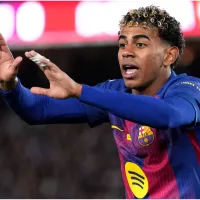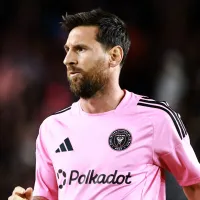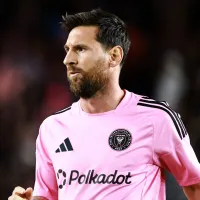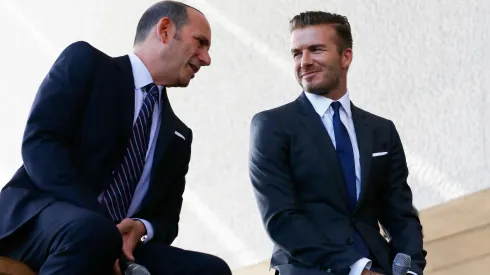
The North American Soccer League hates being called a ‘second division’ and so the turn of phrase used by Italy’s venerable daily newspaper Gazzetta dello Sport on Thursday will have cheered the league’s commission Bill Peterson.
Reporting the announcement that Miami is to have an NASL team from next season – owned by soccer television entrepreneur Riccardo Silva and former AC Milan and Italy defender Paolo Maldini, the famous pink paper described the NASL as “the alternative league to Major League Soccer”.
In a certain sense, NASL is indeed the alternative. The structure of the league, in which clubs are independently owned and face few if any restrictions on their spending, stands in direct contrast to MLS’s ‘single entity’ business model. No salary caps, no limits on spending and no complicated allocation procedures. It is a free market structure that is very familiar to soccer people around the world – the NASL is set-up in the way of leagues almost everywhere.
However the NASL has been careful, most of the time, to avoid setting their league up as a direct competition to MLS. There has long been the sense that they are itching for a fight with Don Garber’s league but generally they have been careful to avoid face-to-face battles. The decision to start a team in Miami, where MLS and David Beckham have been very publicly trying to find a stadium for a new franchise, is however a potentially confrontational move.
I suspect however that the news of the creation of the new Miami FC club was greeted more with a sigh in MLS headquarters rather than a shudder of fear. Because while the NASL is an alternative to MLS it is, in most senses, only an alternative in theory.
SEE MORE — Why NASL expansion to Miami smacks of desperation.
A few years ago, one of the NASL’s founding figures enthusiastically explained to me that the absence of salary restrictions meant that there was no limit to what kind of players NASL clubs could sign. In theory, that is true. But in practice, NASL clubs are paying at the lower end of the salary scale in North American soccer. As I put it to the official, “That is all great – let me know when you sign Landon Donovan.”
Players who can’t get contracts in MLS are glad that another league exists but there aren’t many looking to the NASL for a more lucrative future. In practical terms, for MLS players, the NASL is just a solution for if they find themselves without work, which is no bad thing.
NASL is no real competition commercially. There is no battle for television deals between the league and sponsors aren’t tempted by NASL over MLS.
What NASL does do is provide professional soccer in cities where MLS hasn’t set up shop. Fans in Indianapolis, Jacksonville, Tampa, Minnesota and Fort Lauderdale can enjoy a game on a Saturday night thanks to the NASL. And that is a very positive thing. There is no way that MLS can cover all the cities in North America and unlike with the traditional American sports, college soccer is never going to fill the gap, so another league is needed.
The Miami deal is, however, an attempt to challenge MLS. By starting a team in 2016, the NASL is planting down its flag in Miami before Beckham and Garber. The aim is surely to get a team up and running, with a fan base and a media and commercial presence, that will scare off MLS from finally getting a deal done.
While Beckham and his partners continue their long search for a site on which to build a stadium, the NASL team say they don’t need to worry about such things and will play in an existing venue in the city. The FIU stadium could comfortably hold even a top-end NASL crowd of, say, 12,000.
But the reason why MLS will not be shaking in their boots about yesterday’s announcement is the same reason why they are taking their time over getting things right before committing to a franchise in South Florida. Most informed observers of the soccer scene in Miami know that the only way for a new club to truly establish itself in Miami is to make a big splash with big names and a huge marketing and publicity campaign and a team playing at an accessible modern venue that people really want to visit.
So, the challenge facing Silva and Maldini, if they want to make a club that could truly deter MLS from entering the market, is to create a team with a big-time feel that doesn’t look or play like a minor league outfit. That means the kind of investment that NASL has never seen – not even with the New York Cosmos. It means top international players (on the field and not on the bench or in the director’s box) and a big spend on promoting them.
Are Miami FC ready for that kind of investment and commitment? It remains to be seen but South Florida fans, becoming weary of promises of big-time soccer, can be forgiven for some skepticism.
If Maldini and Silva create a club with a similar profile and reach as the NASL’s other South Florida team – the Fort Lauderdale Strikers – which is pleased to get 5,000 fans through the doors – then that won’t worry Beckham or MLS. It is only if the new club becomes, de facto major league, that there is a potential problem.
So for now, NASL’s little skirmish with MLS in Miami, looks little more than a cheeky tweak of Don Garber’s nose but it does put some pressure on the Beckham group to speed up their initiative.
Maldini, not for the first time in his career, has made a timely intervention. The question now is whether his former Milan team-mate Beckham pulls out of the challenge or not.
Editor’s note: Every Thursday, World Soccer Talk featured columnist Simon Evans shares his thoughts and opinions on world soccer topics. You can follow Simon on Twitter at @sgevans. Plus, read Simon’s other columns for World Soccer Talk.














